
It does no harm to remind all goat keepers of their legal (yet very practical) obligations under the Animal Welfare Act 2006. Prior to this animal welfare law in the UK was largely reactive and action could only be taken once an animal had suffered unnecessarily. In an attempt to improve the welfare of all kept animals, Section 9 of the Animal Welfare Act places a duty of care on people to ensure they take reasonable steps in all the circumstances to meet the welfare needs of their animals to the extent required by good practice. This not only applies to our goats, but to all kept animals such as dogs, cats, and rabbits. This legislation came up with what are recognised as the "welfare needs" of kept animals, these are the:
• need for a suitable environment.
• need for a suitable diet.
• need to be able to exhibit normal behaviour patterns.
• need to be housed with, or apart, from other animals.
• need to be protected from pain, suffering, injury, and disease.
Each of these "needs" must be constantly protected to ensure that your goats remain fit and healthy, but your input may need to vary depending on the seasons. As a simple example, worm control may need to be a priority during the warmer months of the year when goats are outdoors and on pasture but will cease to be a priority once goats are housed for the winter. Conversely there are problems such as pneumonia that will tend to be confined to periods of housing in poorly ventilated buildings.
You may have also heard of the "Five Freedoms," that were developed in the 1970's and have the same objectives, but these have now been largely replaced by these welfare needs.
WHAT MAKES A SUITABLE GOAT ENVIRONMENT
Any goat housing particularly during cold damp spells through the winter must provide:
This story is from the December 2023 edition of The Country Smallholder.
Start your 7-day Magzter GOLD free trial to access thousands of curated premium stories, and 9,000+ magazines and newspapers.
Already a subscriber ? Sign In
This story is from the December 2023 edition of The Country Smallholder.
Start your 7-day Magzter GOLD free trial to access thousands of curated premium stories, and 9,000+ magazines and newspapers.
Already a subscriber? Sign In
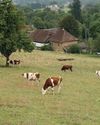
How to Buy a Smallholding in France- Long-time smallholder Lorraine Turnbull looks at the practicalities of moving to rural France
Aspiring smallholders are continually thwarted by the prices of smallholdings and property with land located within the UK. Even the humblest croft in Scotland comes with a substantial price tag and conditions which would make even an adventurous wannabee consider carefully. But all is not lost. For those willing to take the adventure of a lifetime, there is always Europe, and one of the most popular places is France.

Meet the Bournemouth goats and their supporters
These capricious animals are hard workers preserving the natural habitat

Still warm enough to sit outside with a Pizza
Henrietta Balcon uses fresh figs to create an unusual dish at Harvest time
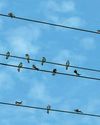
Goodbye to the birds of spring and summer
If you look and listen you might be able to see them preparing to leave says The RSPB
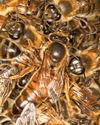
Get ready for the colder weather in the warmth of late summer
Claire Waring advises on doing the best to make sure your colonies survive until next spring
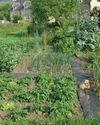
Preparing the Veg Patch for Winter
Lee Senior says, a well-run plot can excitingly continue to produce good quality, tasty, fresh food for much of winter
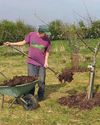
Time to prepare to plant your orchard
Wade Muggleton, smallholder and author of The Orchard Book, shares his practical experience so you can create your own fruit collection
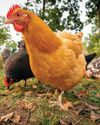
Choosing feed for the autumn
As autumn approaches, Joanna Palmer, nutritionist at the Smallholder Range, offers advice on choosing the right feed to support your adult birds through their annual moult and ensure your young birds grow and finish well at this time of the year.
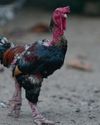
Vet advice from an experienced poultry vet
Reflecting on how much the humble hen has helped people world wide plus advice on stopping the scourge of red mite
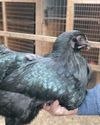
Give your hens some support
Paul Donovan looks at the right and wrong ways of handling birds